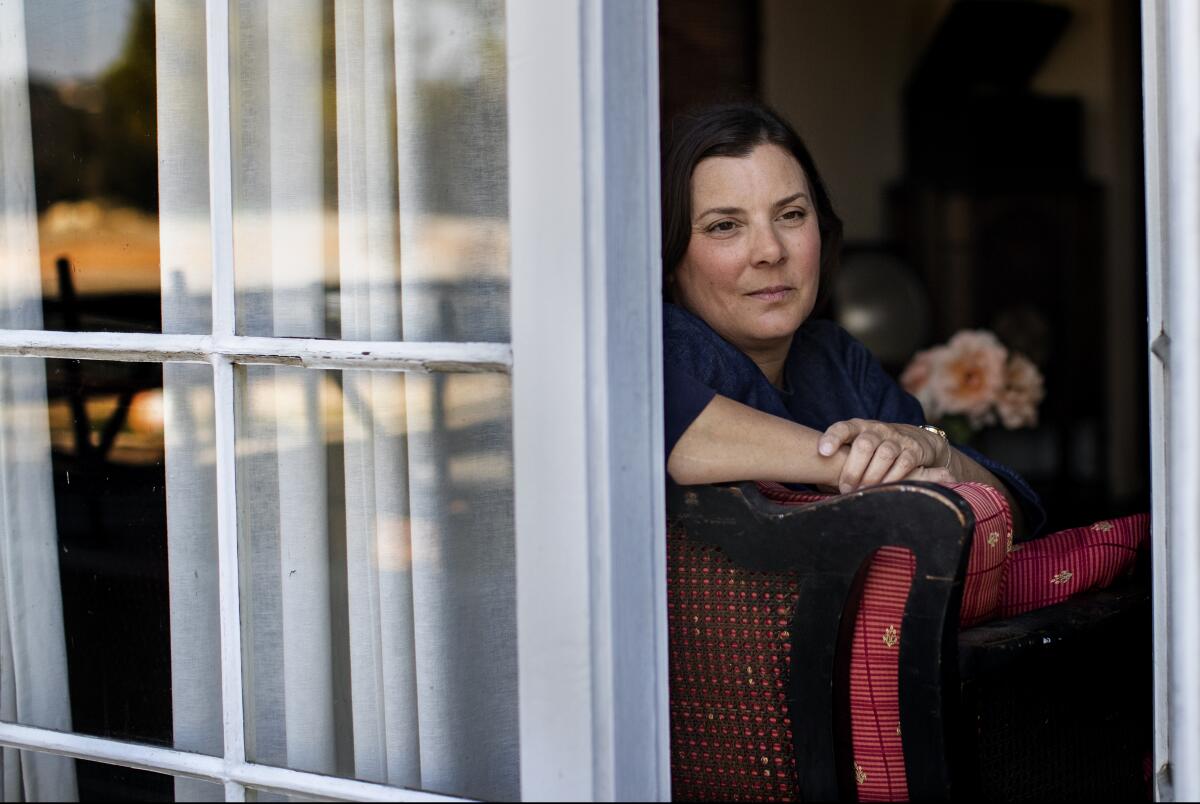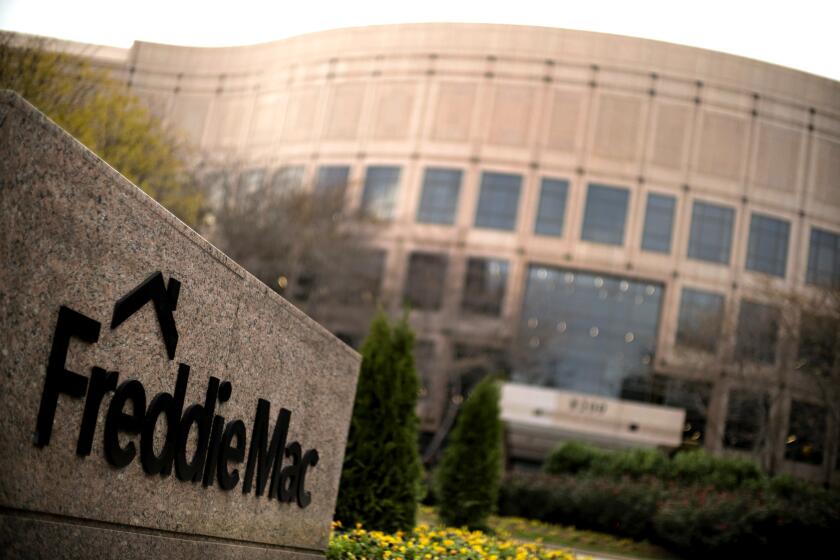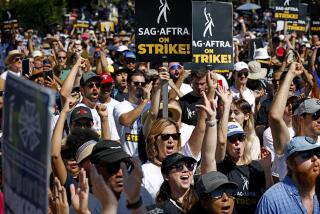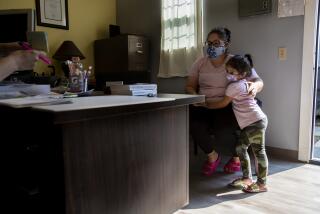Gig workers are now eligible for special unemployment benefits. But many won’t get them

- Share via
The good news for nearly 3 million self-employed Californians, gig workers and independent contractors is they are now eligible for special unemployment benefits.
The bad news for many is they probably won’t get them.
“For folks having to deal with this, it has been insanely frustrating,” said Kyle Petrozza, 38, a Los Angeles freelance commercial photographer.
Petrozza is among untold numbers of recently idled workers who have found themselves shut out of the Pandemic Unemployment Assistance program, or PUA, a key provision of the Coronavirus Aid, Relief and Economic Security Act signed in March by President Trump.
The PUA, which launched in California on Tuesday, was designed to help business owners, gig workers and others who did not qualify for traditional unemployment or had exhausted their benefits.
But there’s a catch for Petrozza and legions of others who toil in creative industries and gig economies: If they were on an employer’s payroll and earned wages of $1,300 or more during any quarter in the previous 18 months, that so-called W-2 amount would become the basis for unemployment benefits — and disqualify them from claiming their self-employment income.
In Petrozza’s case, he had W-2 income of about $3,400 in 2019, a fraction of the net income from his commercial photography business. That translated to a regular unemployment benefit of $159 a week, far less than he would have received through Pandemic Unemployment Assistance, he said.
Petrozza calculated that the difference in benefits will cost him thousands of dollars.
Such mixing of payroll work and self-employment is common among entertainers, photographers and seasonal workers who pick up freelance work the rest of the year. Many have dubbed themselves “hybrid” workers.
California musicians are among the hardest hit, said Los Angeles attorney Jordan Bromley, who estimates that more than 100,000 of them could be shut out of pandemic unemployment assistance.
Here are a few options for reducing expenses during this trying time, such as asking your mortgage servicer and other lenders for leniency.
Though the vast bulk of their income is from self-employment, Bromley said, most also pick up occasional W-2 work.
“A couple of union gigs and it knocks you out of the PUA,” said Bromley, who is on the board of Music Artists Coalition, which is part of a 60-organization group working on CARES Act issues that affect its members. “That’s what we are seeing.”
The group has been reaching out to state officials and members of Congress to find a solution to the problem, Bromley said. State officials’ hands appear to be tied by how the CARES Act was written, he said, so it will require a legislative fix.
Loree Levy, deputy director of the California Employment Development Department, which oversees the unemployment system, agreed that the CARES Act leaves no room for interpretation about who can receive the pandemic assistance.
“As long as an individual is eligible for a regular [unemployment insurance] claim, that individual cannot be found eligible for a PUA claim,” she said.
In a Facebook Live chat Friday, California Labor Secretary Julie Su sympathized with affected workers but offered little immediate hope.
“I hear you,” Su said. “I have heard from a lot of you. I have spoken to some of you who said that seems incredibly unfair because California is a very diverse economy, people are creative and do a whole bunch of different kinds of jobs and sometimes the W-2 is a very small part of your overall income.”
Su said she is aware of efforts to change the rules.
“But until that happens, we have to comply with what the federal law says about PUA,” she said.
Steven Wilkin, an electronic musician who lives in Los Angeles and also has worked as a ride-share driver, said he “completely got hosed on the PUA” because of W-2 pay that made up just 3.7% of his 2019 income.
“They took a W-2 from me that I had in the third quarter of 2019 for a commercial I did,” he said. “It was one day of work and it paid $2,000 and they issued me a W-2.”
Based on that amount, he was granted $77 a week in regular unemployment benefits and has been unable to secure pandemic unemployment assistance. He figures the difference between the two benefits will cost him about $6,000.
Wilkin, 39, and others said they had operated under the belief — in some cases gleaned from information on the state’s Employment Development Department website or through phone calls to its call center — that they could file for regular unemployment benefits and then either cancel them or update them with their self-employment income when the PUA opened up.
They have since learned that is not the case.
“Nope, sorry, your W-2 income disqualifies you and there’s nothing you can do about it,” Wilkin said. “I’m so upset by the whole thing. I woke up at 3:30 this morning because I have so much anxiety about it.”

Michelle Faucheux, 45, a freelance commercial film producer who lives in Silver Lake, said that when she applied for unemployment benefits, a $5,000 W-2 from nearly 18 months ago popped up. It was but a small slice of her self-employed income reported on Internal Revenue Service 1099 forms, she said.
“I have this one W-2 that is not allowing me to get the full benefit, even though it is not my full income, just a tiny bit of my income,” she said.
Faucheux said she placed repeated phone calls in vain to the EDD, which has been overwhelmed by new claims in recent weeks and has been dogged by technical problems including computer crashes that have frozen the applicant web page.
She said she finally got a one-sentence answer to her many emails asking how to claim her self-employment income.
“‘Your 1099 income does not qualify’ — that’s all it said,” Faucheux said.
She gave up and filed for benefits based on her $5,000 W-2 income.
“It’s very frustrating,” she said. “I feel like I’ve been beating my head against the wall. … I have had a lot of emotional distress over it.”
She’s hardly alone.
More than 2.8 million Californians were gig workers or independent contractors in California by 2016, according to an analysis of IRS data published last year by a group of academic and government researchers.
Before the Pandemic Unemployment Assistance program, they would have been ineligible for benefits for their self-employment income.
The pandemic assistance program offers them up to 39 weeks of benefits at $167 a week, and comes with an additional $600 weekly CARES Act stipend through July.
State officials said the $167 will be raised to a maximum of $450 a week for recipients who earned more than $17,368 in 2019, but they have not provided a timetable for that.
More than 3.5 million unemployment claims have been filed in recent weeks, California officials say, and they expect a similar number of new ones through the PUA.
The overwhelming volume has only compounded problems for people like Gil Imber, the organist for the Anaheim Ducks of the NHL.
Imber, who is an hourly wage earner on the Ducks’ payroll during hockey season, is self-employed the rest of the year.
He derives off-season income from self-employment sources, including playing the organ at Loyola Marymount baseball games and from his website CloseCallSports.com, which tracks and analyzes close and controversial calls.
The Ducks were generous enough to pay him through the end of the coronavirus-shortened season, Imber said. And he was delighted to learn that his non-Ducks gigs, which vanished with the spread of COVID-19, would qualify for unemployment benefits.
“I thought, ‘Oh, great, the CARES Act is going to take care of me,’” said Imber, 32, who lives in Sherman Oaks.
“The problem was that at the end of March and in early April, nobody knew how to apply for it,” he said.
His attempts to apply based on his self-employment income during the reigning confusion wound up in getting unemployment benefits for his Ducks income -- a situation he had specifically tried to avoid.
Now he’s not sure what to do with the money.
“I am wholeheartedly afraid to spend it ... What if I am not entitled to it, for one reason or another?” he said.
“Moralistically, I don’t want to touch that money,” he said. “But we do have bills to pay.”
More to Read
Sign up for Essential California
The most important California stories and recommendations in your inbox every morning.
You may occasionally receive promotional content from the Los Angeles Times.












